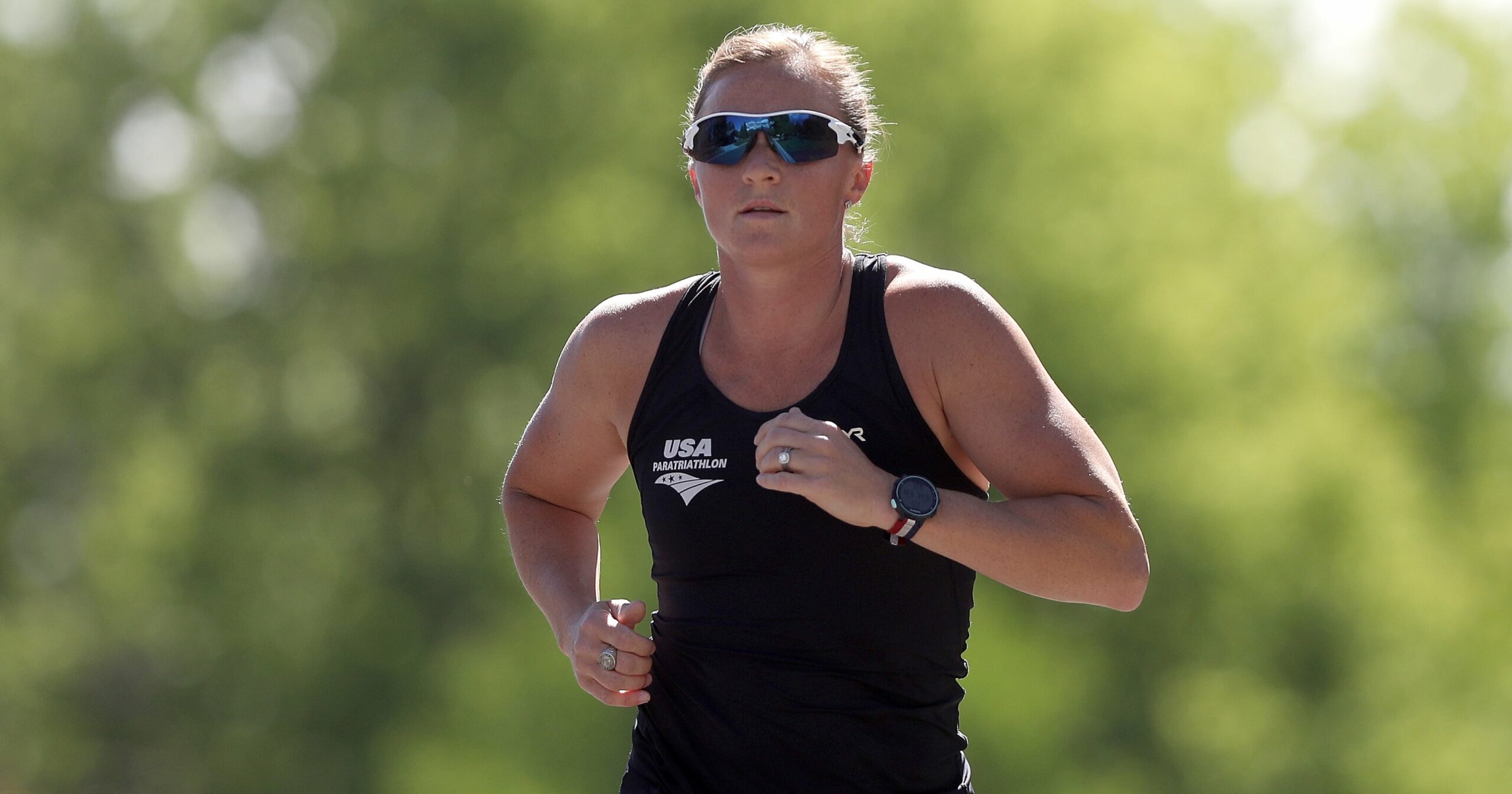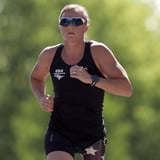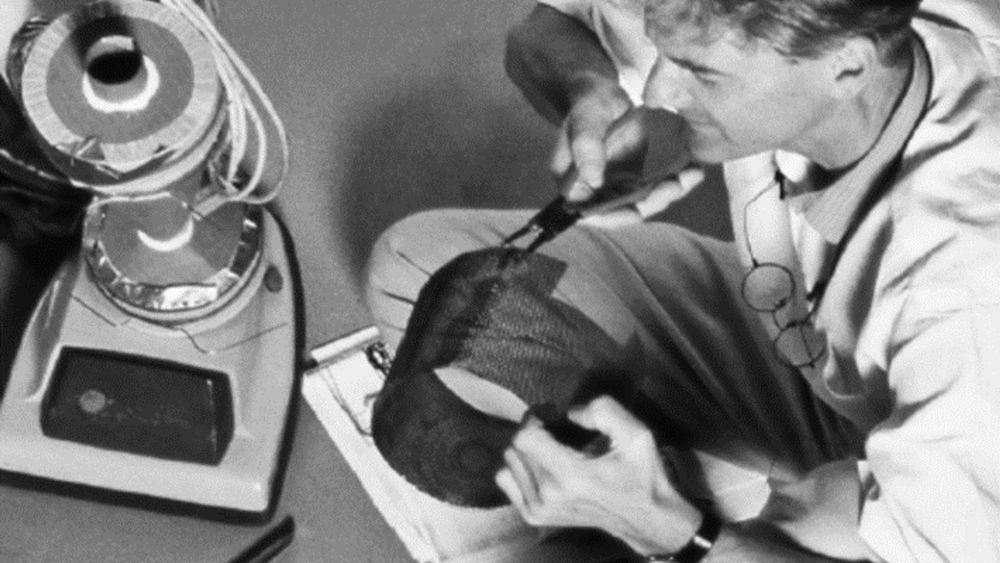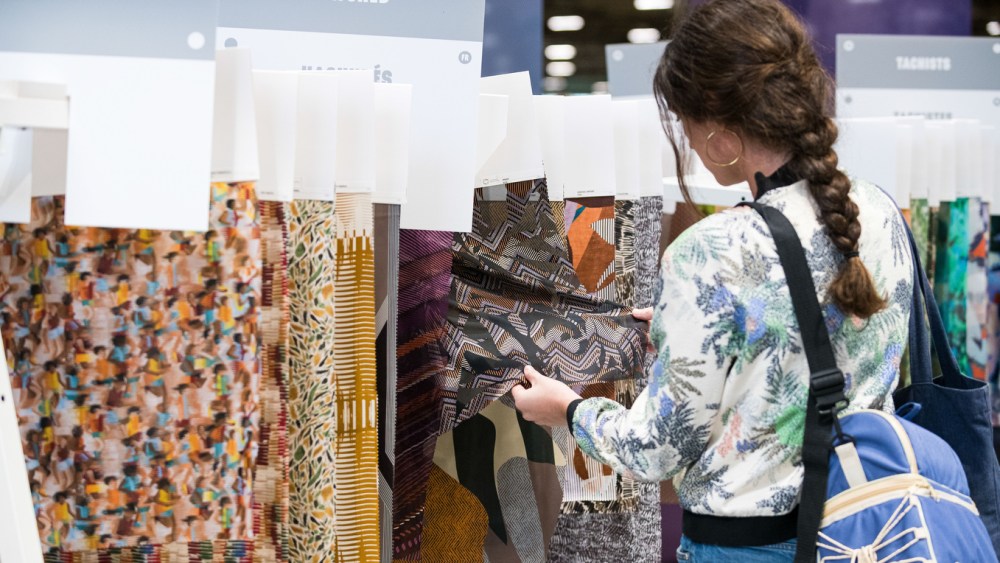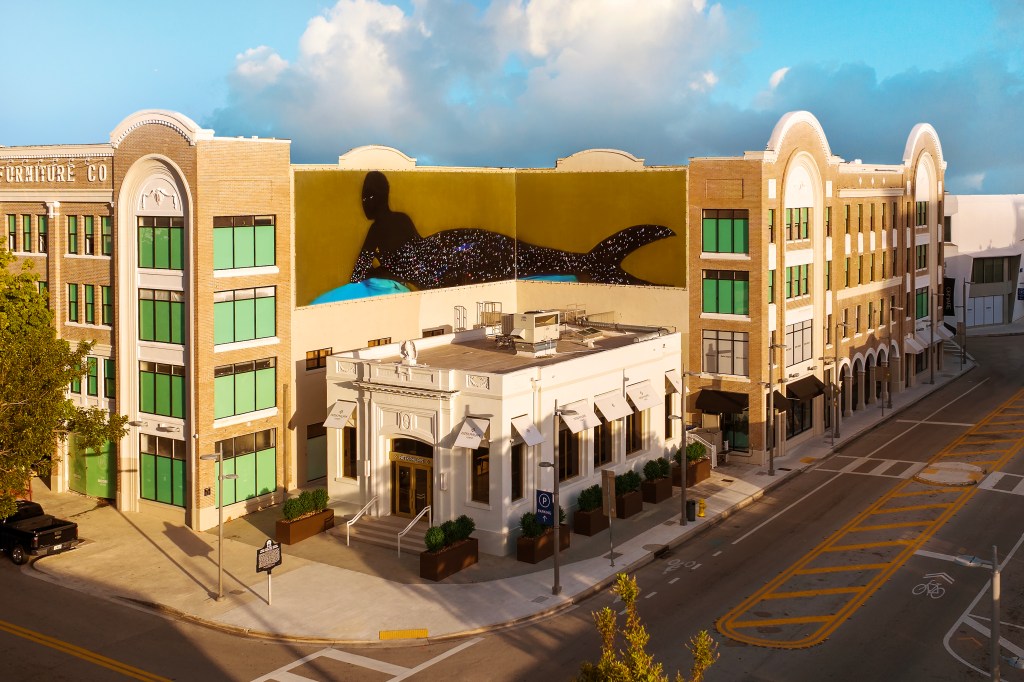Melissa Stockwell has always been about defying the odds. While serving in the US Army as a second lieutenant, she lost a limb in active combat after her vehicle was hit by a roadside bomb in 2004. She later set her sights on sports, becoming the first Iraq War veteran to qualify for the Paralympic Games, competing for Team USA in swimming at Beijing 2008. She then upped the ante with triathlons, earning bronze at Rio 2016 and also competing at Tokyo in 2021.
But her fourth Paralympic Games at Paris 2024 next month might be her most meaningful yet because for the first time, she’ll have her kids by her side.
“They know that mommy swims, bikes, and runs all the time, and they’ve seen me compete once or twice a year, but I want them to see me on the world’s biggest stage and see what I actually do,” Stockwell tells PS. “I’m sure it’ll be more of a challenge at times but it’ll be worth it. I can’t have them miss it.” After all, she wasn’t able to bring her children – 9-year-old Dallas and 6-year-old Millie – to the Tokyo Games because of COVID restrictions, and her eldest was just a baby when she competed at Rio.
In fact, the Olympic and Paralympic Games have been making it easier for athletes to share their experiences with their families, with P&G even sponsoring an on-site nursery in the Olympic Village. Though her kids are older, Stockwell is grateful for the services. “They really try to make it a family affair and make it as uncomplicated for families as possible,” she says.
Stockwell will have plenty of support, with about 30 family and friends joining her in the French capital, including her husband, dad, and in-laws. They’ll also be traveling over with several other families, also with kids. “We have an incredible village of friends in our network, so there will be plenty of people to help if we need it,” she says.
More than anything, she wants her kids to see the grit and determination that has earned her everything from a Purple Heart to a Paralympic medal. “It’s really important that my kids are seeing me with this definitive goal,” says the athlete who’s based in Colorado Springs, CO. “We’ve been counting down the days, and they know it’s coming. They see me working toward it. That’s huge for not just my kids, but for any kids to see that.”
With her family at the forefront of Paris 2024, her goal this time around is simple. “I hope to wear that Team USA uniform and represent as best I can – and enjoy myself, race well, and have my training pay off,” she says. “I would love to be on that podium.”
PS: How’s your mindset different now that you’re a three-time Paralympian already?
Melissa Stockwell: I know what to expect. I’m older – I’m one of the older ones competing. That veteran athlete mentality is beneficial because you can manage your stress a little bit more.
PS: Is there a certain mantra you’re taking with you to this game?I
MS: There’s a lot of them, like the quote, “I haven’t come this far to only get this far.” But also my family is just such a huge motivator, and they’re going to be on the sidelines. I’m going to be able to race with Team USA and some of my greatest friends. I do this because I enjoy it and I’m really trying to take that to heart.
PS: How do you balance training with motherhood?
MS: I definitely can’t do it alone, that is for sure! I live by the calendar. Every night my husband and I go over our calendar for the next day. Every hour and every minute is filled: who’s picking up the kids and who’s bringing them to camps, baseball, or whatever it may be. I get all my training in when the kids are at school or at camp, so it’s back-to-back-to-back. I don’t really have the luxury of recovery in between, but I thrive on that. After I pick up the kids, put my mom hat on: dinner time, bath time, everything that comes with that. It’s busy, but I can’t complain.
PS: How do you deal with those moments when the schedule gets thrown off track?
MS: That is something that used to really stress me out. Kids throw a wrench in everything. But the older I get and the more that things haven’t gone as planned, I’ve worked through it, so the more flexible I am.
It’s almost like training for a race: You have this best case scenario you want to happen, and if it doesn’t, well, you prepare for that. Being a mom actually also prepares me for racing. I could have everything planned out and my daughter wakes up with a stomach flu and I have to stay home. If I need to bike on my trainer at home instead of outside on hills, it’s going to be OK. Life is learning to adapt, and nothing ever goes as planned ever.
PS: What do you do in the moments you’re caught between the two sides?
MS: I think any working parent can agree: When you’re with your kids, you think you should be doing work, and when you’re at work, or for me training, I think I could be with my kids right now. It’s a balancing act, 100 percent. When I train, that’s my time. That fills my cup, and I truly enjoy it. Then, I come back and I’m mom or I’m a wife. It’s a juggling act, and you get pulled in both directions all the time. You try to combine the two as best you can.
PS: You’ve truly turned your disability into motivation. How did that mindset come about?
MS: Pretty early on, actually. After I was wounded in Iraq and lost my leg, I went to Walter Reed Army Medical Center for rehab. I looked around and saw soldiers that were missing much more – some lost two limbs, some had spinal cord injuries and traumatic brain injuries. I realized that I was one of the lucky ones because all I had lost was one leg. I had the rest of my body and I had my life. That helped me put things in perspective. It was like: I lost a leg, but I’ve got three good limbs. Let’s accept this and move on and see what can happen from there.
PS:How did that lead to swimming?
MS: I knew how to swim, but not at that elite level. I went into the pool at Walter Reed for rehab and loved it right away. It had this healing effect that made me feel whole again. I took to it pretty quickly. So, when I learned about Paralympics, I thought, I’m gonna give it a shot in swimming.
PS: And how did you go from swimming to triathlons?
MS: Why not, right? I never thought I would do one, but I did and fell in love with it, and have been doing it ever since. I loved being on the course with all the athletes crossing the finish line. I even liked the challenge of the different prosthetic legs I had to wear. I have learned to enjoy all three sports in different ways, but I just love the sound of my prosthetic on the pavement, especially on a nice morning.
PS: You’ve already pushed so many boundaries. What’s next?
MS: We’ll have to see what happens after the Paris Paralympics. I know I’ll always be an athlete. It just depends on what level. Maybe I’ll do more marathons or do more running, but we’ll see about that.
Also, two of my friends [Keri Serota and Dan Tun] and I co-founded a nonprofit Dare2tri where we get athletes with physical disabilities into the sport of triathlon. We were honored to receive the P&G Athletes for Good grant to help our athletes get expensive adaptive equipment, programs, training, and coaching. We want to show them how much ability is in their disability. So I look forward to continuing to be a coach there and mentor those athletes, youth, adults, injured service members, and see where we can take that.
PS: What are some of the hurdles you have to coach these athletes through?
MS: A lot of it is acceptance. Often, athletes with a disability are completely on their own. They’ve never seen someone with a similar disability. Suddenly they get into one of our Dare2tri programs, and they’re surrounded by this community of other people with disabilities. You just have this feeling that you’re not alone. Together, we can do this. It’s pretty phenomenal for their self-confidence and self-worth. It sets them up for success, hopefully, in all aspects.
PS: What do you hope your kids will take away from your Paralympic experience?
MS: In life, things come your way that you never expect. I never expected to lose my leg, but it’s definitely not a focus point of our lives. They know that their mom only has one leg. If obstacles come their way, hopefully they think, “If my mom got through that, I can get through this.” Hard times will come, but they can get through them and they can dream big and just shoot for the moon – and I’ll be their biggest cheerleader along the way.
Rachel Chang is a travel and pop culture journalist and a magazine editor (Us Weekly senior editor, J-14 editor in chief, CosmoGIRL! entertainment editor) turned freelance writer. She’s a regular contributor to Condé Nast Traveler and Travel + Leisure, and has written for PS, New York Times for Kids, Wall Street Journal, Lonely Planet, and United’s Hemispheres, among others.
